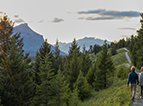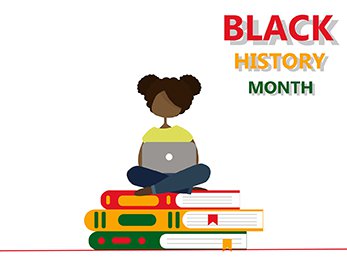Things to Do While You Stay at Home: Part 2

Last week we shared a list of recommendations for STEM-filled movies, podcasts, books and shows our staff suggested enjoying during this stay-home period. While you probably haven't made it through all of the recommendations in that first blog yet, we told you we had even more to share.
There were so many great suggestions that we split the ideas into two parts. Here's another round of entertaining, educational and inspiring content to distract your mind and fill some quarantine time.
So, without further ado, we hope you enjoy Part 2 from our quirky, science-loving staff.
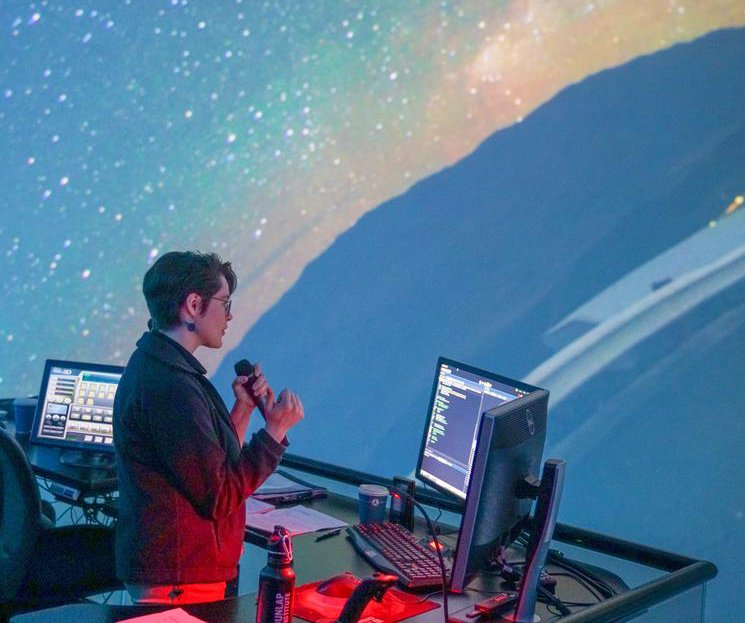
Mariarosa Marinelli, Astronomy Educator
“Ologies”
https://www.alieward.com/ologies
Becky Chambers novels
https://www.harpercollins.com/author/cr-122521/becky-chambers/
I wholeheartedly recommend books by Becky Chambers for those looking for optimism in their speculative science fiction. Her character development and worldbuilding are rich and dynamic. Three of her books ("The Long Way to a Small, Angry Planet,” "A Closed and Common Orbit," and "Record of a Spaceborn Few") take place in the same universe. They are loosely linked together, examining different settings in a future where humans have left Earth, established settlements on Mars and expanded into interstellar travel to find that the rest of the galaxy was waiting for them to catch up. Rather than aliens who have the same values and social constructs as humans, Chambers envisions species with incredible diversity. For a closer-to-home journey, her novella "To Be Taught, If Fortunate" follows a crew of explorers who are able to alter their bodies to survive their interstellar stops. As they explore exoplanets, they also grapple with the changes amongst them, and back home. The ending...well I'll just say, I haven't cried that hard since Dumbledore died. In her works, Chambers takes what we know about the universe and extends it, in order to create a world that feels like it could be real, just a few hundred (light) years ahead of us. Her mother is an astrobiologist, and she grew up immersed in space science, further bolstering the realism of her work.
I also highly recommend the podcast series "Ologies" hosted by Alie Ward. For each episode, she interviews different experts about their STEM fields, from nephology (the study of clouds), chronobiology (the study of circadian rhythms), chiropterology (the study of bats), ludology (the study of video games), areology (the study of Mars) and over one hundred more! What I love about Ward is that she's not afraid to ask the "dumb questions,” and the responses from her guests always underscore the truth that there are no "dumb questions.” One of my personal favorites is episode 12, where she interviews the cosmologist Dr. Katie Mack on the study of the universe. Incidentally, you may know Dr. Mack from her own science communication, awesome Twitter clapbacks or from the chorus of the song "No Plan" by Hozier.
Elli Bosch, Science Specialist
“Ologies”
https://www.alieward.com/ologies
I second “Ologies!” I think the host's tagline really captures the vibe of this learning podcast: "Ask smart people stupid questions.” The host curates "stupid" questions that laymen would ask about the expert's work without getting into the nitty gritty of it all. It's great for people who are interested in science, but don't have an educational background in it. These podcasts don't build on each other, so you can pick and choose topics that interest you. Some fun examples include: corvid thanatology (crow funerals), myrmecology (ants), conservation technology (earth saving) and cheloniology (sea turtles).
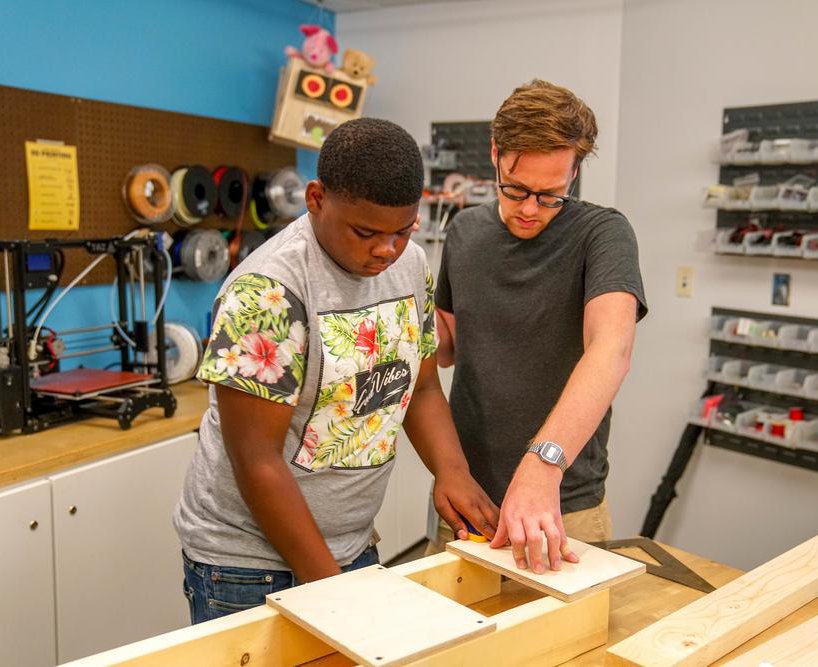
Jason Adkins, Museum Educator
“Futility Closet”
https://www.futilitycloset.com/podcast/
“You Are Not So Smart”
https://youarenotsosmart.com/podcast/
This weekly podcast (there’s a website, too, at www.futilitycloset.com) is all about the curious and strange in our world seen through a critical lens. Topics are diverse and well researched.
They describe it as “forgotten stories from the pages of history.” I like that you also get to challenge yourself with their “lateral thinking” puzzles.
The “You Are Not So Smart” blog and podcast are about scientifically exploring self delusion. For example, one episode is about the science behind The Dress: why some people see it as black and blue and others see it as white and gold. It’s fun how the scientific investigation of The Dress led to the scientific investigation of socks and Crocs, which, as one researcher called it, might be the nuclear bomb of cognitive neuroscience.
A bonus recommendation: I really like the podcast “Liftoff” (https://www.relay.fm/liftoff). It’s about the space industry, current launches and pending missions. It’s a great way to keep up with what is happening in space news.
Eliana Avery, Museum Educator
“Wicked Plants: The Weed That Killed Lincoln's Mother & Other Botanical Atrocities”
https://www.amystewart.com/books/wicked-plants/
I've been reading “Wicked Plants” by Amy Stewart, a non-fiction book that details over 200 plants that are considered hazardous, lying anywhere on a scale between invasive and deadly. It's scientifically sound – there’s actually a traveling museum exhibition based off of it! I also read another of her books, “Wicked Bugs,” last month. I would recommend that one, too, especially to anyone who loves our “Giant Insects” exhibition and wants to learn more.
Brandon Pennington, Advertising Manager
“Lost in Space”
https://www.netflix.com/title/80104198
Stuck at home and looking for a nice, intergalactic vacation? I suggest taking some time to binge watch the Netflix series, “Lost in Space,” a reboot of the original 1960’s series. This sci-fi adventure drama introduces us to the Robinson family 30 years in the future. Due to an astronomical impact event and Earth’s declining climate conditions, inhabitants are fleeing to the nearest star system, Alpha Centauri (that’s a fact: Alpha Centauri is the closest star system to Earth).
The Robinsons are aboard an interstellar space craft taking them on a short four-year trip to Alpha Centauri. In today’s technology a trip to Alpha Centauri would take well over 100,000 years, as this system is 4.37 light years, or more than 25.6 trillion miles away! During their space travel, they get…you guessed it...lost. While lost in space, the Robinson family encounters alien flora and fauna, explore unique environments on other planets (raining diamonds, anyone?), and use pragmatic problem solving to get out of sticky situations. The series delves into the concept of artificial intelligence after the Robinsons meet, and even befriend, a robot who forms a special bond with the youngest of the Robinson children. With unparalleled visuals, we get an extraordinary look at what the future might hold, what may exist in the vast universe and inspiration for what STEM innovations may come.
There are currently two seasons on Netflix, with the second season being my personal favorite. So, grab some popcorn, cozy up on the couch and prepare to get “Lost in Space!”

Michael Andrews, Museum Educator
“Moby Dick”
https://www.amazon.com/Moby-Dick-Herman-Melville/dp/1503280780
“The Expanse”
https://www.amazon.com/gp/video/detail/B07YL9WK1S/
I’ve been working my way through “Moby Dick,” and though it is not based on current science, it's fascinating to read the quite detailed passages of Cetology (whale Zoology), biology and taxonomy from the perspective of early 19th century science. I’ve been enjoying comparing what I read in the book to what we now understand about whales.
There’s also a fantastic science fiction series on Amazon Prime called "The Expanse," which is unique for its portrayal of a fictional future grounded in realistic technology, laws of physics, believable human responses to alien technology and detailed explorations on how we would govern a society that spans the solar system. I think it offers a very believable take on space combat in zero gravity, great attention to detail in how ships might function and an interesting take on how civilization on Mars and in the asteroid belt would affect the humans who lived there. It’s very much a "hard" science fiction show, with awesome action and an epic story.
Ben Wright, Immersive Experiences Coordinator, Danville Science Center
“100 Humans”
https://www.netflix.com/title/80215997
I really enjoyed Netflix’s science and nature documentary “100 Humans.” A diverse sample of 100 adult humans are exposed to a series of social experiments to form larger conclusions about larger society. I like that the show utilizes the scientific method with clearly defined constants and variables. That said, I remind viewers that sometimes it makes broad generalizations based on a small sample size and a limited number of experiments. It’s still a fun watch!
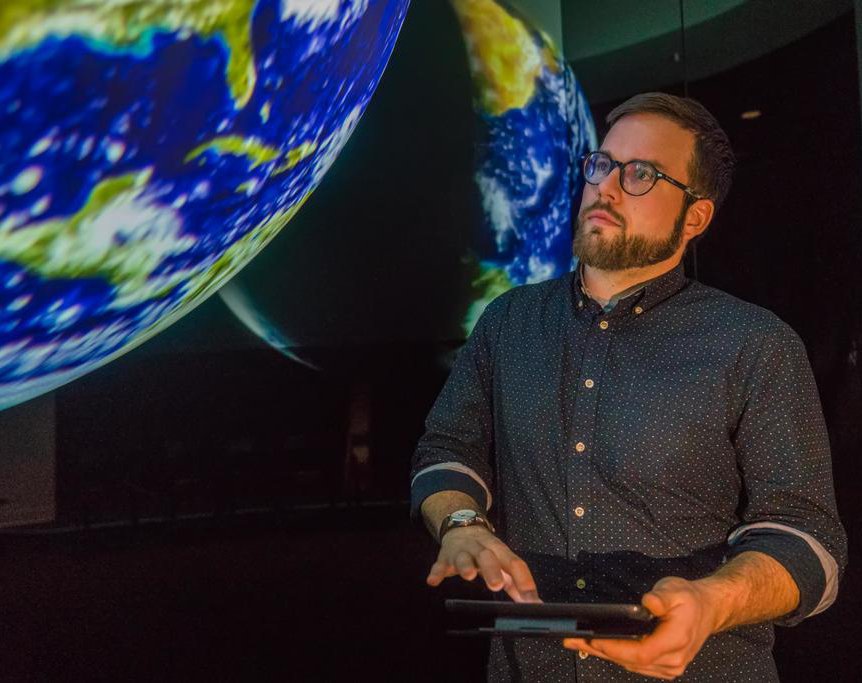
Jeremy Hoffman, Museum Scientist
“Thinking Fast and Slow”
https://www.amazon.com/Thinking-Fast-Slow-Daniel-Kahneman/dp/0374533555
“Who We Are and How We Got Here”
https://www.amazon.com/Who-Are-How-Got-Here/dp/110187032X
“Science Vs”
https://gimletmedia.com/shows/science-vs
Danny Kahneman’s book “Thinking Fast and Slow” changed my life! Learning about how you learn and the way your brain processes information is hugely important to understanding how and why we react to information the way we do. Kahneman and his colleague Amos Tversky revolutionized the way we study bias in human information processing. If you like this topic, in another interesting approach to explaining how we think, theoretical physicist Leonard Mlodinow explains how simple illusions shape how we perceive the world around us in “The Drunkard's Walk: How Randomness Rules Our Lives.”
https://www.amazon.com/Drunkards-Walk-Randomness-Rules-Lives/dp/0307275175
Another fascinating read is David Reich’s “Who We Are and How We Got Here.” This book about genomics – the study of how ancient DNA can help us understand the present – is revolutionizing how we understand just what makes us human, and how we got to be who we are today. Reich is one of the foremost scientists in this field, and he is totally honest about how the conclusions presented are continually being updated by new studies published every year.
My last recommendation is “Science Vs” hosted by Wendy Zuckerman. People hate it when I've just listened to the latest episode of Science Vs because I inevitably ruin something they think is legit about the world! I suggest starting with early episodes about vitamins/supplements and forensics, then moving to more recent episodes on CBD and the 7-minute workout.
Credit: Featured image via Getty Images

